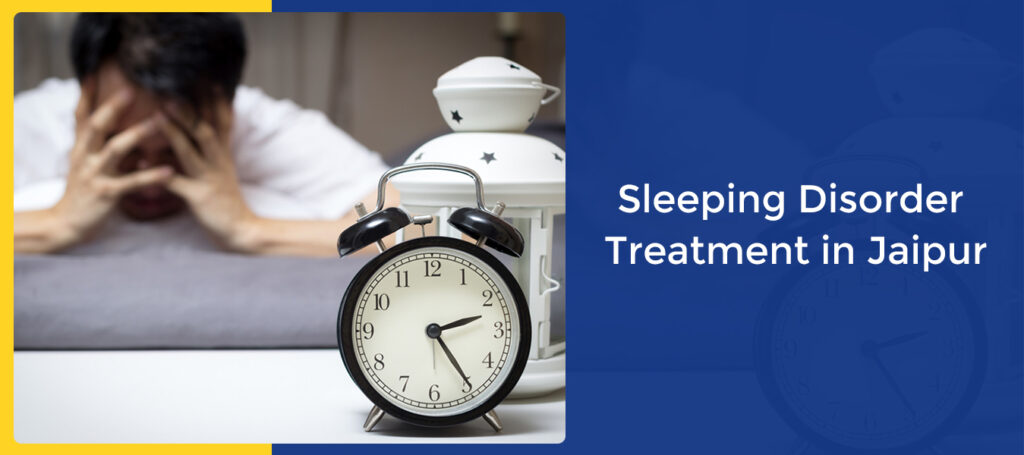
Description
Do you find difficulty in sleeping regularly? If you are experiencing the same, sleeping disorder treatment in Jaipur can help you overcome the problem. People who are unable to have a sound sleep usually feel extremely tired throughout the day and lack of sleep can negatively impact the mood of the individual, energy, concentration, and overall health in the long run. Moreover, if the sleeping disorder persists for a long time, it can further lead to other health problems especially those associated with mental health conditions. The treatment depends on identifying the underlying cause of the disorder.
Effects/ Causes
There can be numerous causes for sleeping disorders among which stress, busy schedule, and other external influences are the prominent ones. The condition is not taken seriously when it occurs occasionally but if it occurs regularly and hampers the quality of life, the patient is required to undergo sleeping disorder treatment in Jaipur. Sleep can be disturbed due to many reasons such as frequent urination, allergies, lungs, and respiratory issues. Stress, Anxiety, fatigue, and chronic pain conditions such as arthritis, fibromyalgia, migraine, mild headache, and constant pain in the lower back can also enhance the problem.
Common Sleeping disorders and their treatment
The treatment mainly depends on the type of sleeping disorder from which the individual is suffering. This includes Insomnia, Sleep Apnea, Parasomnias, Narcolepsy, etc. Out of all these, sleep apnea is a commonly identified type of disorder that is recognized by pauses in breathing during sleep. As a consequence, the body receives less oxygen which can cause the individual to wake up during the night. Sleep Apnea can be further categorized into Obstructive Sleep Apnea and Central Sleep Apnea.
The CPAP (Continuous Positive Airflow Pressure) Therapy is one of the most effective treatment approaches to treat mild to severe sleep apnea. The CPAP device delivers a continuous stream of air and the air pressure keeps the airway open, thus preventing the pauses in breathing while sleeping. Moreover, surgery can be performed to increase the size of the airway in case all other methods have failed to provide the desired relief to the patient. Upper airway surgery is recommended which involves the removal of tonsils, adenoids, and excess tissue inside the nose or the back of the throat.
FAQ
What are the common signs and symptoms of a sleeping disorder?
Loud snoring, frequent headache, drowsiness/ tiredness throughout the day along with difficulty staying awake.
What risk factors may arise if I am diagnosed with a sleeping disorder?
Sleeping disorder can put you at a higher risk of diseases such as blood pressure, diabetes, depression, and anxiety.
Should I consult a doctor if I have trouble sleeping?
Yes. If you frequently have trouble sleeping, it is recommended to consult a doctor who can provide you the right treatment.
Are there any risks of the surgery for sleep disorders?
Surgery might stop snoring but in rare cases, the patient may experience pain, infection, and speech problems.

